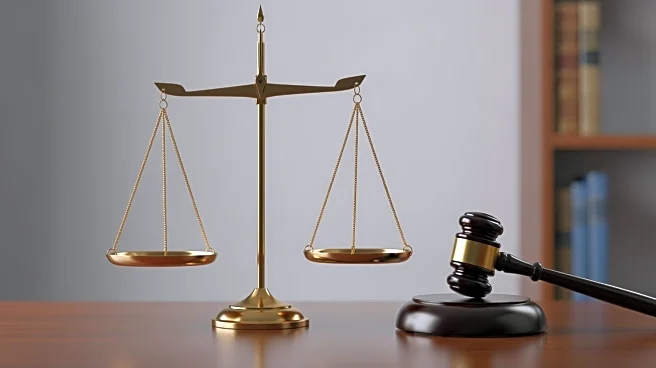What's Happening?
The Metropolitan Police has announced it will cease investigating non-crime hate incidents, allowing officers to focus on criminal investigations. This decision follows the arrest of Graham Linehan, creator of Father Ted, at Heathrow Airport for alleged
incitement of violence in social media posts. The Crown Prosecution Service reviewed the evidence and decided not to pursue charges against Linehan. The Met Police's policy change aims to provide clearer guidance for officers and reduce ambiguity in handling cases related to online incitement. Non-crime hate incidents are recorded to monitor potential escalation into serious harm but do not constitute criminal offenses. The decision has sparked discussions on the balance between free speech and incitement risks.
Why It's Important?
The Metropolitan Police's decision to stop investigating non-crime hate incidents is significant for free speech and public safety. It reflects ongoing debates about the role of law enforcement in policing online speech and cultural conflicts. By focusing on criminal investigations, the police aim to allocate resources more effectively, potentially impacting how hate incidents are monitored and addressed. This move may influence public discourse on free speech rights and the legal framework governing online behavior. Stakeholders such as civil liberties groups and political leaders may react to this policy shift, considering its implications for public safety and individual rights.
What's Next?
The decision may prompt legal and political discussions about the adequacy of current laws governing online speech and incitement. The Metropolitan Police's call for government clarification on these laws could lead to legislative reviews or amendments. Civil society groups and legal experts might engage in advocacy or litigation to address concerns about free speech and public safety. The outcome of these discussions could shape future policies on hate incidents and online behavior, influencing how similar cases are handled across the UK.
Beyond the Headlines
The policy change raises ethical questions about the balance between protecting free speech and preventing harm. It highlights the challenges law enforcement faces in navigating cultural debates and online incitement. The decision may influence public perceptions of police priorities and their role in addressing societal issues. Long-term, this shift could affect how hate incidents are perceived and recorded, impacting data collection and policy development in related areas.

















